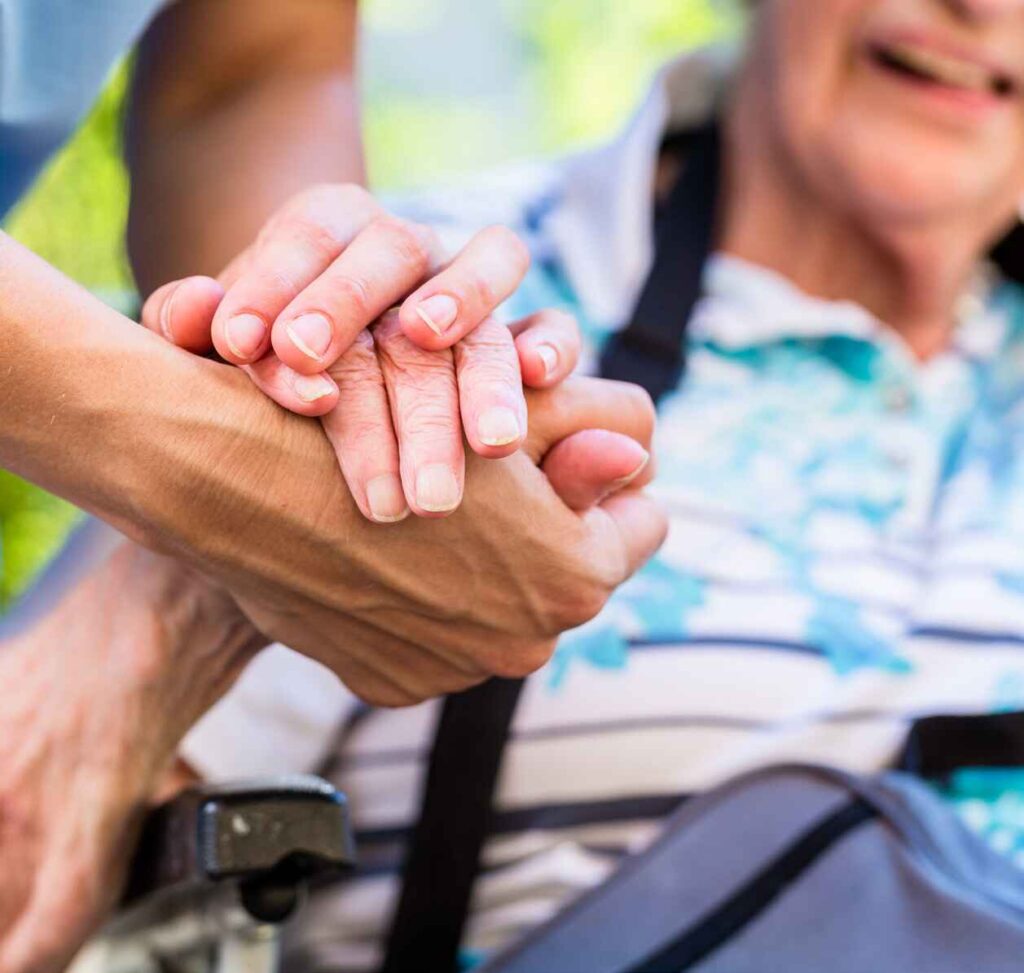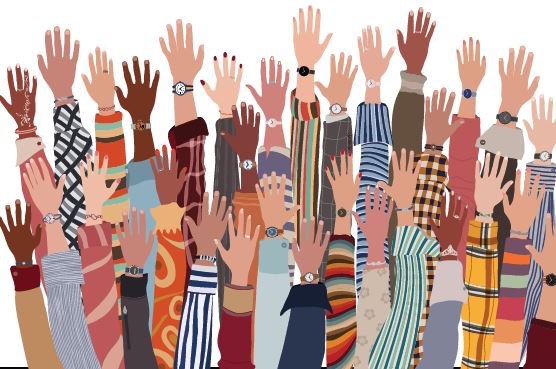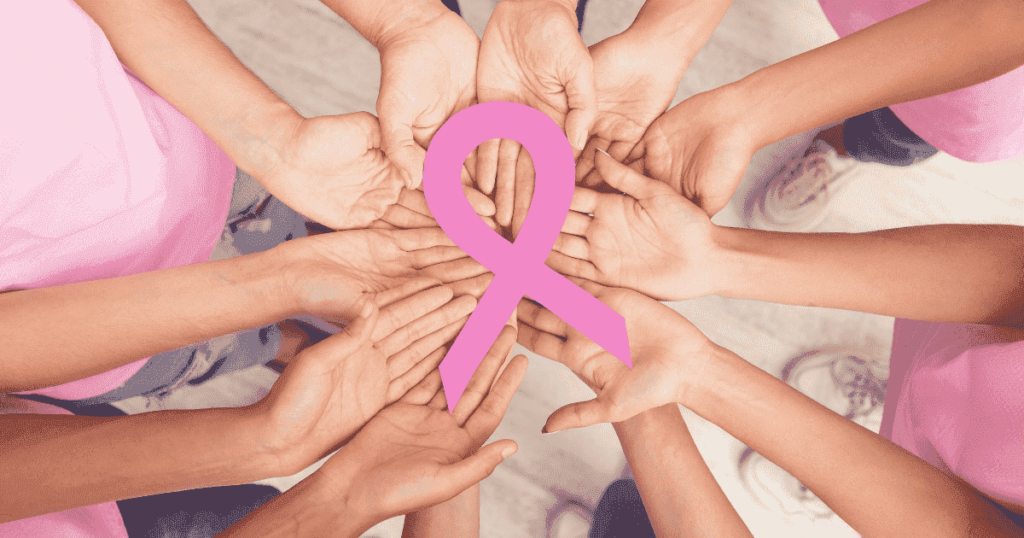Every April, we take time to recognize Patient Experience Week, a vital healthcare observance that highlights the commitment of providers, caregivers, and referral partners in delivering compassionate, high-quality care. For those of us in hospice care, this week is a special opportunity to express gratitude for the invaluable collaboration of medical professions like you – who trust us to provide comfort, dignity, and peace to patients during life’s most vulnerable moments.
When a patient is facing a terminal illness, their journey should be met with the highest level of comfort, respect, and support. The decision to refer a patient to hospice is never easy, but together, we ensure that their transition is seamless, compassionate, and focused on quality of life. By working closely with physicians, hospital discharge planners, skilled nursing facilities, and other healthcare partners, we:

Research consistently shows that patients who receive hospice care earlier in their disease trajectory experience higher quality of life, improved symptom control, and better family satisfaction (Teno et al., 2016). Studies also highlight that coordinated transitions to hospice can significantly reduce unwanted hospitalizations and aggressive treatments at the end-of-life, allowing patients to spend their final days in the place they prefer – whether at home, in a hospice residence, or a long-term care facility (Dixon et al., 2015).
Moreover, patient-centered communication and collaboration between referring providers and hospice teams lead to a 70% improvement in satisfaction among families and caregivers (Connor et al., 2020). This statistic underscores the critical role of partnerships in hospice care – ensuring every patient’s experience is defined by comfort, dignity, and peace.
Your dedication to patient-centered care does not go unnoticed. By partnering with our hospice team, you ensure that patients and families receive the respect, comfort, and guidance they deserve in life’s most precious moments. Your referrals make a profound difference – not only in the quality of care provided but in the lasting impact on the families left behind.
This Patient Experience Week, we celebrate you. Thank you for entrusting us with your patients and for your unwavering commitment to their well-being.
If you’d like to discuss how we can further streamline referrals, improve patient transitions, or provide additional support, we are here for you.
Let’s continue working together to make every patient’s experience one of dignity, peace, and compassionate care.
Connor, S. R., Teno, J., Spence, C., & Smith, N. (2020). Family perceptions of quality in hospice care: Findings from the National Hospice and Palliative Care Organization Family Evaluation of Hospice Care Survey. Journal of Pain and Symptom Management, 60(4), 719-725.
Dixon, J., King, D., Matosevic, T., Clark, M., & Knapp, M. (2015). Equity in the provision of palliative care in the UK: Review of evidence. Journal of Palliative Medicine, 18(1), 3-15.
Teno, J. M., Gozalo, P. L., Bynum, J. P., Leland, N. E., Miller, S. C., Morden, N. E., & Mor, V. (2016). Change in end-of-life care for Medicare beneficiaries: Site of death, place of care, and health care transitions in 2000, 2005, and 2009. JAMA, 309(5), 470-477.
Hospice care is built upon a foundation of compassion, dignity, and support – not only for the patient but also for their family and loved ones. While medical teams provide expert pain and symptom management, hospice volunteers bring an irreplaceable level of companionship, emotional support, and non-medical assistance that enhances quality of life in the final stages.
Despite their essential role, many healthcare professionals are unaware of just how much volunteers contribute to hospice care. This is where we stand apart – our volunteers are at the heart of everything we do.

Our dedicated hospice volunteers extend their care in profound ways that benefit both patients and their loved ones, including:
Research shows that volunteer involvement in hospice care has a measurable impact:

Many hospice providers mention volunteers in passing, but few truly leverage them as a core part of their care model. Our hospice program prioritizes volunteer integration in ways that make a tangible difference, ensuring:
Choosing the right hospice provider for your patients means selecting a team that goes beyond symptom management – it means selecting a provider that values the whole-person approach, including the emotional and psychosocial support volunteers bring.
Refer your patients to a hospice that treats volunteers as an essential part of the care team. Contact us today to learn more about how our hospice services stand apart.
Candy, B., France, R., Low, J., Sampson, E. L., & Vickerstaff, V. (2020). Does involving volunteers in the provision of palliative and end-of-life care improve patient and family well-being? A systematic review of quantitative and qualitative evidence. Journal of Pain and Symptom Management, 60(2), 302-312.
Connor, S. R., Pyenson, B., Fitch, K., Spence, C., & Iwasaki, K. (2019). Comparing hospice and nonhospice patient survival among patients who die within a three-year window. Journal of Pain and Symptom Management, 40(5), 704-710.
Ghesquiere, A., Hauser, J., & Schulz, R. (2021). Family caregiver burden and hospice use: The impact of volunteer support. The Gerontologist, 61(1), 108-117.
National Hospice and Palliative Care Organization (NHPCO). (2023). NHPCO facts and figures: Hospice care in America. https://www.nhpco.org/hospice_statistics

As a hospice care provider, we understand the complexities and challenges of managing end-stage heart conditions. These advanced stages of heart disease can significantly impact the quality of life, making it essential to consider supportive care options that prioritize comfort and dignity.
According to the Centers for Medicare & Medicaid Services (CMS), patients with heart disease qualify for hospice care if their life expectancy is six months or less, as certified by a physician (CMS, 2022).
If you or a loved one is living with an advanced heart condition, consider how hospice care can help maintain dignity, comfort, and peace during this challenging time. Our team is here to provide expert care and guidance every step of the way.
Contact us today to learn more about hospice services for patients with end-stage heart conditions. Let us help you make the most of every moment. Contact us for details.
As a hospice care provider, we recognize the complex challenges faced by patients living with HIV/AIDS, particularly as they approach the end of life. HIV/AIDS Awareness Month offers an opportunity to reflect on how we can provide compassionate, specialized care that addresses the physical, emotional, and psychosocial needs of these individuals.
HIV/AIDS patients nearing the end of life often face a range of symptoms that can significantly impact their quality of life. These may include chronic pain, severe fatigue, opportunistic infections, and emotional distress. Hospice care is designed to provide relief from these symptoms while also offering emotional and spiritual support to both patients and their families.
Statistics show that up to 50% of people with HIV will experience some form of neuropathic pain in the later stages of the disease, a condition that hospice care can effectively manage through personalized pain management plans . Additionally, psychosocial distress is prevalent among HIV/AIDS patients, with studies indicating that approximately 40% experience depression, anxiety, or other mental health challenges . Our interdisciplinary team, including skilled nurses, social workers, and spiritual counselors, works collaboratively to address these multifaceted needs.

Our hospice team is trained in the specific needs of HIV/AIDS patients, understanding the stigma and social isolation they may experience. We prioritize maintaining dignity, fostering open communication, and respecting cultural sensitivities. Our care plans are tailored to each patient, ensuring that we meet their unique needs and preferences.
We invite you to partner with us in providing the highest standard of care for your patients with HIV/AIDS. By referring them to our hospice services, you can ensure they receive compassionate, comprehensive care tailored to their specific needs.
For more information or to discuss how we can collaborate to support your patients, please contact us. Together, we can make a meaningful difference in the lives of those facing the end stages of HIV/AIDS.
Neuropathic Pain in HIV/AIDS Patients:https://www.jpsmjournal.com/article/S0885-3924(15)00248-3/fulltext
Psychosocial Distress in HIV/AIDS Patients: https://www.tandfonline.com/doi/abs/10.1080/09540121.2017.1371664

As we honor Breast Cancer Awareness Month, it’s essential to recognize the unique needs of patients facing the challenges of advanced-stage breast cancer. Hospice care provides a compassionate, holistic approach that focuses on comfort, dignity, and quality of life when curative treatments are no longer effective or desired.
For patients with advanced-stage breast cancer, the journey can be physically and emotionally overwhelming. Hospice care offers a specialized team of healthcare professionals who understand the complexities of managing symptoms, pain, and the emotional toll of end-stage illness. Our approach emphasizes:
Referring patients to hospice care early can significantly improve their quality of life. Hospice is not about giving up; it’s about embracing the final stages of life with dignity and grace, surrounded by loved ones and compassionate caregivers. If you have patients with advanced-stage breast cancer, consider discussing hospice care as an option to enhance their comfort and support.
Our hospice team is here to support you and your patients every step of the way. We work closely with you to ensure a seamless transition to hospice care, offering:
This Breast Cancer Awareness Month, let’s work together to ensure that patients with advanced-stage breast cancer receive the compassionate care they deserve. If you would like to discuss how hospice can be integrated into your patient care plans, please reach out to us.
Call Us Today.
Pain and Terminal Illness: Pain is a prevalent symptom in terminal illnesses, with studies indicating that up to 80% of cancer patients experience pain at some point during their illness . Effective pain management is essential to improve the quality of life for these patients. Hospice care provides a comprehensive approach to pain management, utilizing a combination of pharmacological and non-pharmacological interventions tailored to individual patient needs.
Pharmacological Interventions: Hospice care employs various medications to manage pain, including opioids, non-opioids, and adjuvant analgesics. Opioids remain the cornerstone of pain management in terminal illnesses due to their efficacy. However, there is often hesitation from families regarding their use due to myths and misconceptions. It is important to communicate that when used appropriately under medical supervision, opioids can significantly enhance comfort without hastening death .
Non-Pharmacological Interventions: In addition to medications, hospice care incorporates complementary therapies such as relaxation techniques. These interventions can help alleviate pain and enhance overall well-being, providing a holistic approach to patient care.
Managing Terminal Agitation
Terminal agitation, characterized by restlessness, confusion, and anxiety, affects many patients nearing the end of life. It can be distressing for both patients and their families. Hospice care professionals are skilled in identifying and managing terminal agitation through personalized care plans that may include:

Frequent hospitalizations can be traumatic for terminally ill patients and their families. Hospice care focuses on providing comprehensive care at the place the patient calls home, thus minimizing the need for hospital admissions. Research has shown that patients receiving hospice care have fewer hospitalizations and emergency room visits compared to those not enrolled in hospice programs .
One of the barriers to hospice referrals is the misconception that pain medications, particularly opioids, are harmful or hasten death. It is crucial to educate families that:
Hospice care is vital in managing pain and terminal agitation, ensuring that patients can spend their final days in comfort and with dignity. Let’s talk about your patients who can benefit from the pain and symptom management techniques that hospice can provide.

By: Joelle Jean, FNP
Caring for a loved one who is terminally ill and on hospice is emotionally and physically taxing. In 2015, an estimated 39.8 million caregivers provided unpaid care to an adult with a disability or illness. The estimated value of the service supplied by caregivers is up to $470 billion since 2013.
Caregivers may deny help from others, perhaps out of guilt or obligation. However, 1 out of 6 caregivers report not being asked what they need to care for themselves. Caregivers can work up to 8.3 hours per day or 66 hours per week during their loved ones’ last days of life. Often, this is in addition to working a full-time job and caring for their own immediate family.
Caregivers are at risk for depression, severe fatigue, or burnout, or even health issues such as hypertension, stroke, obesity, or weight loss due to stress.
A caregiver, also known as an informal caregiver, is an unpaid individual or group of individuals who provide care to a loved one. Caregivers can be a spouse, family members, partner, friend, neighbor, or combination of these individuals.
A caregiver assists their loved ones with activities of daily living which include:
A caregiver can also play a significant role in coordinating care for their loved ones. Many are appointed power of attorney or the primary decision maker for their loved ones, managing finances, property, and most suitable medical care for the individual.
There is no clear definition of caregiver stress. The Merriam-Webster dictionary defines stress as “a physical, chemical, or emotional factor that causes bodily or mental tension and may be a factor in disease causation.” Burnout can be a response to stress, defined as extreme emotional exhaustion. According to stress.org, stages of burnout are:
A caregiver with stress or burnout exhibits signs of feeling overloaded, overwhelmed, emotionally drained, tiredness, detachment from the person they are caring for, and a reduced sense of accomplishment.
Caregiver stress affects the person or people directly caring for their loved one. Stress can also affect caregivers in different ways. For example, one caregiver may find specific tasks stressful or overwhelming while another caregiver may find the task relaxing and rewarding.
Often, caregivers are not aware of their stress or feeling of burnout. Signs and symptoms of caregiver stress can be subtle or obvious. It is important to identify caregiver stress so it can be eased.
Anxiety is a stress response, activating the fight or flight response that happens chemically in the brain. Physically, anxiety can be described as:
Caregivers suffering from stress may not realize they are fatigued. Fatigue is the body’s response to burnout and can be physical, emotional, or psychological.
Stress can cause weight changes and affect eating patterns. Weight change can occur when dealing with caregiver stress. Rapid weight gain or unexplained weight loss is a warning sign of caregiver stress and should be addressed appropriately.
Caregivers may become easily annoyed or short-tempered with loved ones, family members, or friends. Feeling irritable may be a warning sign of caregiver stress.
Feeling overwhelmed or anxious is normal. Caregivers may become overwhelmed with the amount of care needed to provide to their loved ones. Trouble concentrating, changes in sleep patterns, and changes in eating habits may occur.
Losing interest in activities can be a sign of depression due to the demanding responsibilities of caregiving. Signs of depression include:
Chronic stress (or stress lasting for more than six weeks) can have lasting health problems. Caregivers exhibiting signs and symptoms of stress and burnout have a higher chance of developing health risks.
Caregivers can suffer from high blood pressure due to the stress of caring for a loved one in hospice. If caregivers have already been diagnosed with high blood pressure, stress can make the disease worse. Uncontrolled high blood pressure puts caregivers at higher risk for:
The immune system is in place to protect the body from illness and disease. Stress can cause a weakened immune system. With a weakened immune system, caregivers can become sick or develop chronic illnesses such as:
Studies have shown that a symptom of chronic stress is the shrinking of the brain. Shrinking of the brain causes short-term memory loss. Short term memory loss affects learning, judgement, and memory process.
Stress can cause headaches and body pains. On a hormonal level, the increase of cortisol causes headaches even at rest. The physical nature of caring for a loved one on hospice- lifting, standing, walking, and rotating- can cause severe body pain or injury.
Self-care is imperative for caregivers caring for their loved ones in hospice. Self-care means caring for yourself, so you can improve your health to care for others.
Finding the time and the energy to exercise might sound difficult. However, even carving out 30 minutes a day has positive effects on your health. Exercising whether it is running, walking, swimming, or doing yoga will lower blood pressure, increase energy, and improve mood.
Accepting help can be difficult for some caregivers. It is important to ask and accept help so that you are available for your loved one mentally and physically.
Under most insurances and Medicare, respite care is available to relieve the burden of caregiver stress. Respite care will give short term caregiver relief to those who are in need.
Eating and sleeping well are fundamental in protecting your physical and mental health. A well-balanced meal of fruits, vegetables, and plant-based foods is important for physical and mental well-being. Adding vitamins such as a multivitamin, vitamin D, or vitamin B-12 can also help improve your mood and energy.
Having a good night’s sleep has many health benefits. Feeling well-rested and energized will only benefit you, as the caregiver, and your loved one. Improved memory, mood, and overall well-being are all benefits of quality sleep.
Support groups add immense value to caregivers who are caring for loved ones in hospice. Joining support groups reassures caregivers that they aren’t alone. Support groups:
Maintaining personal relationships is as important as joining support groups. Meeting up with friends or family members allows you to relax. It also allows you to take time for yourself and time away from your loved one.
Awareness of caregivers’ stress and burnout must be addressed and acknowledged for caregivers to feel supported and recognized for their challenging work. The hospice team and its services are a fundamental part of bringing this awareness to the forefront.